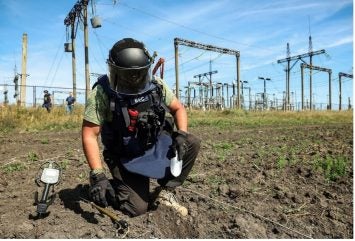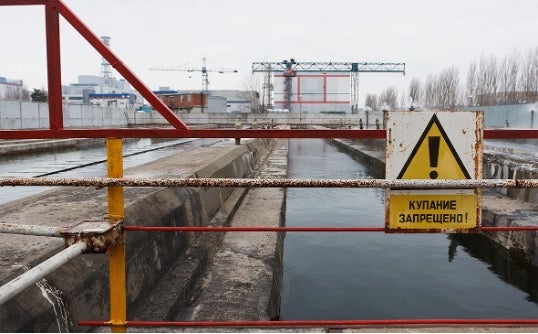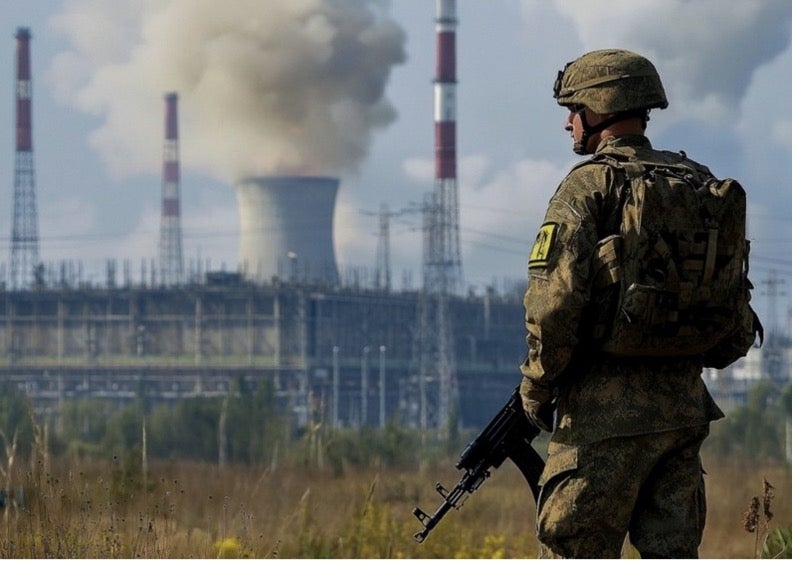
“Given the serious situation, I am personally leading the International Atomic Energy Agency (IAEA) mission to the Kursk Nuclear Power Plant (KNPP) in the Russian Federation,” IAEA Director General Rafael Mariano Grossi said in a statement.
“Since new developments and increased levels of military activity in the vicinity of the KNPP, I have been closely following developments on the ground, especially with respect to the plant. It is important that when the Agency is called upon to fulfil its mandate to ensure that nuclear is used in a peaceful manner, we are present.”
He added: “It is also important that when the international community needs an independent assessment of the safety and security of a nuclear facility, we will be there. The only way in which the IAEA can validate the information is when we have an opportunity to independently assess what is happening.”
He stressed that the safety and security of nuclear facilities must, under no circumstances, be endangered. “This is an evolving situation, and it is vital when I arrive at the plant … that I see first-hand the situation and discuss modalities for further activities as may be needed to evaluate the nuclear safety and security conditions of the KNPP.”

He noted that the seven indispensable pillars of nuclear safety during an armed conflict and the five concrete principles – established to protect the Zaporizhia NPP – were applicable to any nuclear power plant and must be respected.
Earlier, following Ukrainian forces incursion into the Kursk region on 6 August, Russian Foreign Ministry spokeswoman Maria Zakharoiva warned that Kiev’s “planned provocations against the Kursk nuclear power plant could lead to a large-scale man-made disaster in Europe”.
On 22 August, a Ukrainian kamikaze drone was shot down near the KNPP and was found near a used nuclear fuel storage facility. According to Russia, the Ukrainian drone was shot down by Russian electronic warfare equipment before it reached the station. Zakharova said it was “an act of nuclear terrorism” and demanded an immediate response from the IAEA.
Russian President Vladimir Putin announced that Moscow had informed the IAEA. “The enemy tried to strike at the nuclear power plant last night. The International Atomic Energy Agency has been informed, and they promise to come and send experts to assess the situation. I hope that they will do so,” he said.

The IAEA reported that it had been informed by the Russian Federation that the remains of a drone had been found within the territory of the Kursk Nuclear Power Plant. “The drone fragments were reported to have been located roughly 100 metres from the plant’s spent fuel nuclear storage facility.”
Grossi confirmed his intention to personally assess the situation at the site during his forthcoming visit. “During his visit, Director General Grossi will assess the situation on site and discuss modalities for further activities as may be needed to evaluate the nuclear safety and security conditions of the Kursk Nuclear Power Plant,” IAEA noted.
The Permanent Representative of the Russian Federation to International Organisations in Vienna, Mikhail Ulyanov, said on his Telegram channel that he had met with Grossi and had “discussed with him practical issues related to his upcoming visit to the Kursk NPP”.
Meanwhile, Russian nuclear utility Rosenergoatom said unit 4 at KNPP will be disconnected from the grid for scheduled maintenance that will involve approximately 2,000 experts and is expected to last 59 days. This will leave just one unit (3) in operation. Units 3&4 are RBMK reactors. Units 1&2 (also RBMKs) have been closed pending decommissioning. Two new VVER-1200 reactors are under construction at the site.
KNPP and the operators’ town of Kurchatov is located on the banks of the Seim River, 40 kilometres west of Kursk and about 110 kilometres from the border with Ukraine. Security restrictions have been tightened around the facility. The authorities have temporarily restricted activity in the water area of the Kurchatov reservoir and its coastal zone, KurskActing Governor Alexey Smirnov said.
The Kurchatov reservoir is a cooling pond for the Kursk NPP. Smirnov said a ban is being introduced on holding cultural, sports and other events on the territory of the reservoir and its shore. “Fishing, the use of small vessels, jet skis and other swimming facilities are also banned. In addition, the work of entertainment establishments and holding mass events is temporarily prohibited within the coastal zone” he said on his Telegram channel.






